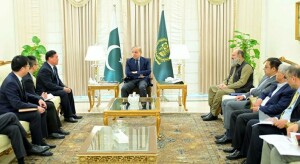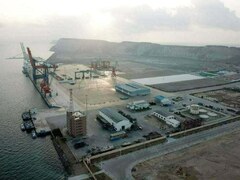ISLAMABAD: The Election Commission of Pakistan (ECP) has finalised all preparations for conducting nationwide Senate elections, the upper house of the bicameral parliament, on April 2.
Polling would be held in the National Assembly and all four provincial assemblies from 9 AM to 4 PM.
Ballot papers in four different colors have been printed for the Senate elections. White papers will be used for general seats, green for technocrat seats, pink for women, and yellow for minority seats.
Additionally, the transportation of election materials to returning officers has been completed.
Returning officers have already issued the final list of the candidates contesting elections on 48 vacant seats of the Senate.
The elections were scheduled for 29 general seats, eight seats for women, nine seats for technocrats/Ulema, and two seats for non-Muslims.
According to the Election Commission, a total of 147 candidates submitted their nomination papers for these vacant seats.
Out of these, 18 elected unopposed, seven are from Punjab’s general seats. Similarly, in Balochistan, senators for seven general seats, two women seats, and two Ulema/technocrat seats have won without any opposition.
As per schedule issued by the Commission, the contest on remaining 30 seats will be held on Tuesday. In total, 59 candidates are vying for the vacant seats.
The elections being held next month on one general and one technocrat seat from the federal capital, two women seats, two technocrat/Ulema seats, and one non-Muslim seat from Punjab. Similarly, Sindh will see elections for seven general, two women, two technocrat/Ulema, and one non-Muslim seat. Additionally, Khyber Pakhtunkhwa will hold elections for seven general, two women, and two technocrat seat on April 2.
In total, 59 candidates are vying for these seats.
The Senate elections for 11 seats in Khyber Pakhtunkhwa could be delayed if the Speaker of the KP Assembly does not administer the oath to women and minority lawmakers-elect from the Pakistan Muslim League Nawaz (PML-N) on the reserved seats, as warned by the electoral body.
According to the Election Commission of Pakistan (ECP), the elections aim to fill the seats left vacant by half of the current senators who retired on March 12. Out of the 52 senators who completed their six-year terms and retired, elections are being held for 48 seats. This is because four seats were abolished following the merger of the former Federally Administered Tribal Areas (FATA) regions into the Khyber-Pakhtunkhwa province. Consequently, the Senate’s total number of seats will decrease from 100 to 96.
Recently, the Election Commission of Pakistan (ECP) released a detailed code of conduct for parties and candidates ahead of the Senate elections. The code aims to guarantee transparency, integrity, and fairness throughout the electoral process.
The code of conduct imposes stringent guidelines on political parties and candidates involved in the elections. They are urged to avoid making the electoral watchdog controversial and are prohibited from engaging in corrupt or illegal activities. Additionally, any support from public office holders to influence election outcomes is strictly forbidden.






















Comments
Comments are closed.